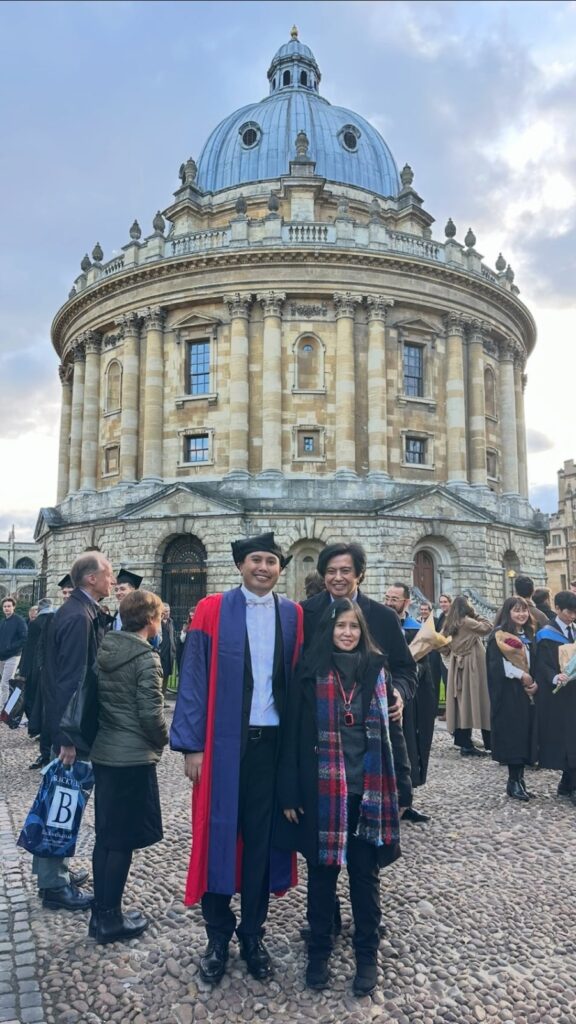A first-year UCF medical student who hopes to discover how stem cells can treat psychiatric conditions has been named a 2025 STAT News Wunderkind, a national honor that recognizes young “scientific superstars” in biomedicine.
Alejandro De Los Angeles joined the medical school this fall after earning his Ph.D. at Oxford University, completing an M.P.H in Epidemiology at Harvard University, and conducting postdoctoral research at Harvard, MIT and the Broad Institute of MIT and Harvard. As a postdoctoral fellow, he was part of an international consortium of stem cell biologists and ethicists that published an article in Nature magazine to promote changes to long-standing limits on human embryo research. He has also conducted research on how best to deliver stem cells to the brain to improve care for stroke survivors and identifying new psychiatric drugs.

STAT News chose 29 Wunderkinds this year based on hundreds of nominations from across North America. “We were on the hunt for the most impressive doctors and researchers on the cusp of launching their careers, but not yet fully independent,” the news organization said in making its announcement.
STAT News provides in-depth coverage of medicine, health and the life sciences. It gives the annual Wunderkind awards to early career scientists who are conducting groundbreaking research but do not yet have their own labs.
De Los Angeles said he was inspired to seek a career in science and medicine by his parents, who are both emergency medicine physicians. “My parents would take me to the ER, and I’d see people who were sick get better as my parents were helping and treating them,” he said. “I saw science and medicine in action.”
He is fascinated by the promise of stem cells to treat disease. The cells play a key role in the body’s growth, repair and maintenance throughout your life span. The cells begin as unspecialized and then differentiate into specific cells, such as neurons in the brain or blood cells. “Studying the cells allows us to model neurological and psychiatric disorders in a Petri dish – helping us investigate what might be going wrong and paving the way for new discoveries,” he said.
All UCF medical students must conduct a two-year research project through the Focused Inquiry and Research Experience (FIRE) module. De Los Angeles has already chosen his FIRE mentor, Dr. Kiminobu Sugaya, who leads the College of Medicine’s Neuroscience Research Division and whose research focus is developing stem cell therapies for neurodegenerative conditions including Alzheimer’s disease, Parkinson’s disease and ALS.
De Los Angeles said his experience at Oxford and the United Kingdom’s National Health Service showed him the advantages of a health system that provides preventative and interventional care to people showing early signs of mental illness. Interventions such as antipsychotic medications helped patients treat and manage their condition before they became violent or had a psychotic break. “These interventions are very powerful,” he said. “They show the power of medicine to improve lives.”
Looking ahead, De Los Angeles hopes to become an M.D./Ph.D./M.P.H physician-scientist who can conduct research on stem cells and translate new therapies to alleviate suffering for patients with debilitating neurological and psychiatric conditions such as stroke and schizophrenia.
“I’m deeply honored to be recognized as a STAT Wunderkind,” he said. “This recognition is not just about me, but about the mentors, colleagues and especially my parents who inspired me to pursue medicine and science. It strengthens my commitment to become a physician-scientist who can harness the promise of stem cells to improve care for patients with neurological and psychiatric illness.”